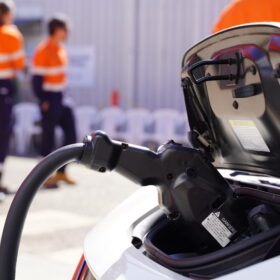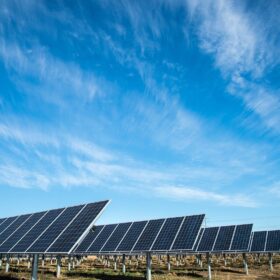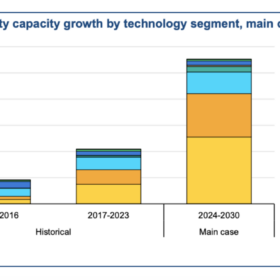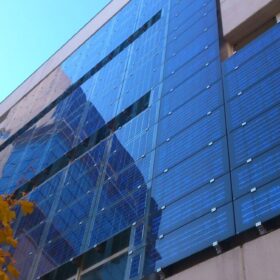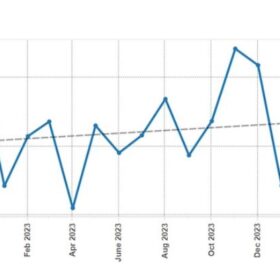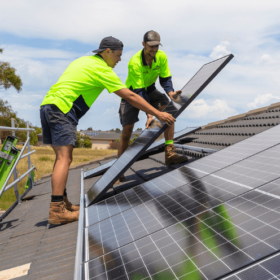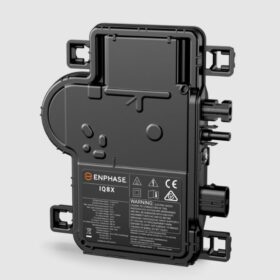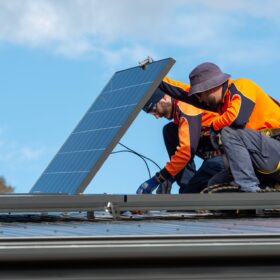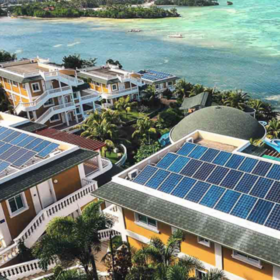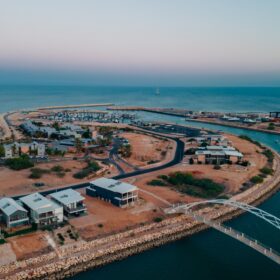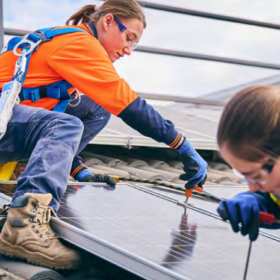CSIRO and Essential Energy to trial vehicle-to-grid tech
New South Wales distributed network service provider Essential Energy and Australia’s national science agency CSIRO have partnered to investigate how vehicle-to-grid technology can be best integrated as part of a wider home energy management system and support the energy system of the future.
Australia on track to add 53 GW of renewable capacity by 2030: report
The International Energy Agency’s Renewables 2024 report has forecast Australia will add 53 GW of renewable capacity between 2024-2030, with a nearly 65% share being from a mix of utility, rooftop and green hydogen production solar.
IEA forecasts over 4,000 GW of new solar by 2030
The International Energy Agency says renewables are on course to meet almost half of global electricity demand by 2030, with solar accounting for 80% of the growth in capacity.
Building-integrated PV system integrates PCM on sides
Scientists have designed a new building-integrated PV system that uses 30 mm of phase change material on each side of the wall. The array reportedly achieved superior thermoelectric coupling performance compared to reference BIPV systems without PCM.
Rooftop solar install rates dip below straight-line average
Australia’s rooftop solar installation rate has continued to cool for a second consecutive month with national market volumes in September down about 3% on August when 273 MW was installed.
Home solar and battery installs wanted by most Australian households: survey
A new household energy survey suggests 68% of home and property owners would spend up to $10,000 on rooftop solar and residential battery installation costs if it meant they could save $2,000 a year on bills.
Enphase microinverter Australia launch comes with series-wide 25-year warranty
Enphase Energy has launched its grid-forming IQ8X™ microinverter in Australia, while extending a limited 25-year warranty on all IQ8-series microinverters activated from 1 October 2024.
Solar installers chasing millions after aggregator’s registration suspended
Rooftop solar certificate aggregator Emerging Energy Solutions, which has gone into liquidation reportedly owing creditors more than $86 million, has had its registration “permanently suspended” by the Clean Energy Regulator.
Investment giants advance move into APAC renewables market
Global investment firm Patrizia and Japanese trading and investment giant Mitsui have continued their push into the Asia Pacific renewable energy market, acquiring an interest in Philippines-based rooftop solar developer BEI.
Horizon taps Pacific to power Exmouth with 80% renewables
Remote power supplier Pacific Energy has signed a multi-year agreement with West Australian regional energy provider Horizon Power to supply the popular tourist town of Exmouth with up to 80% renewable energy every year for the next 20 years.
